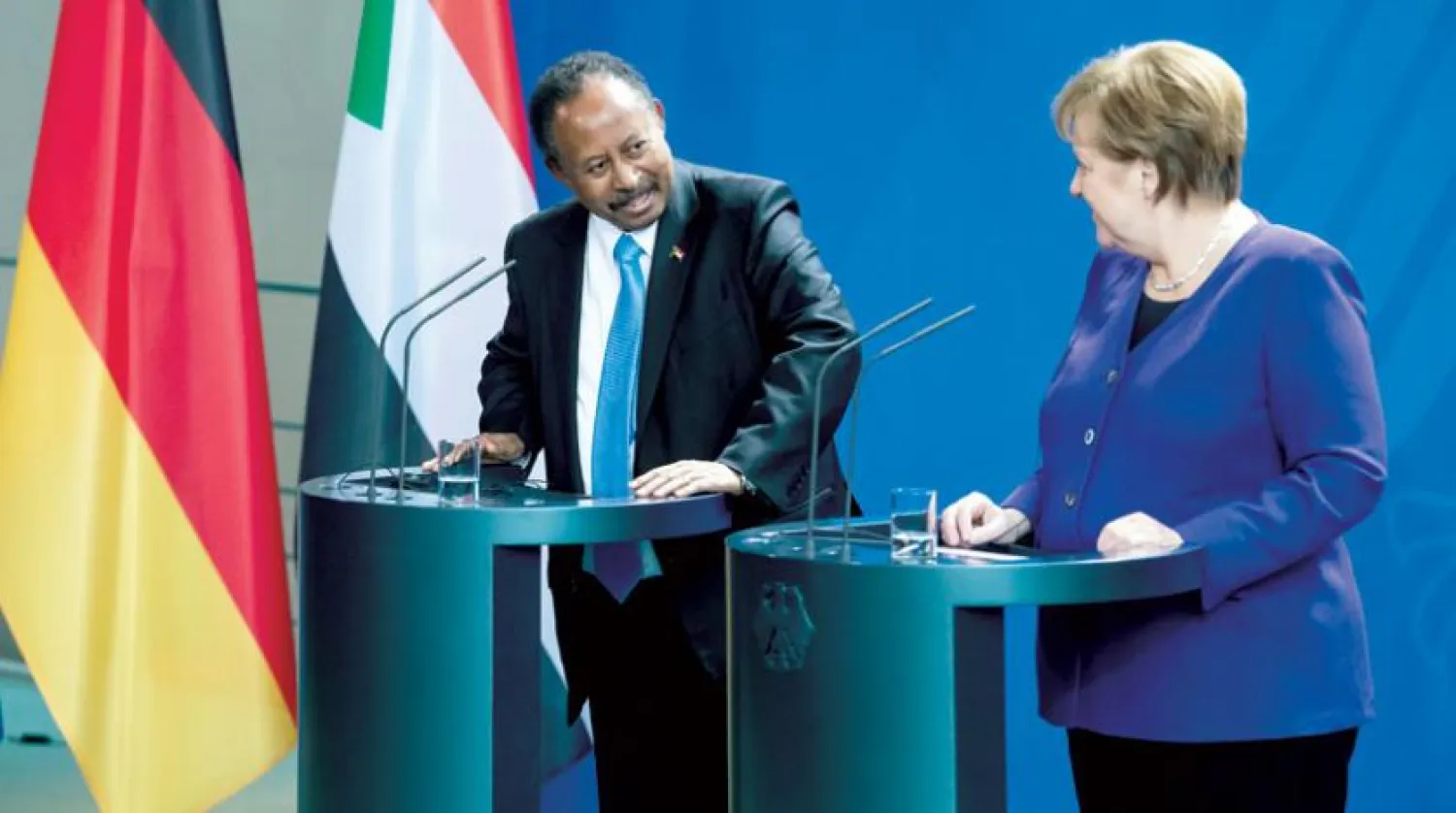German Chancellor Angela Merkel has expressed support to the Sudanese government during a meeting in Berlin with Prime Minister Abdullah Hamdok.
“Sudan is at a historical turning point,” Merkel said after her talks with Hamdok, who was in Germany to attend the Munich security conference.
Before Hamdok’s arrival in Berlin, the German parliament decided to lift sanctions placed on Sudan since 1989 and to resume development, technical, political and financial cooperation between the two countries.
“Sudan is looking forward to finding opportunities ... namely in the sectors of energy, agriculture, training and infrastructure,” the Sudanese PM tweeted, commenting on the German decision.
At the press conference in Berlin, the Chancellor said: “We have followed [events in the country] with great sympathy and also great respect over the last year, what the Sudanese people have done without violence and courage, how they have collapsed a regime of injustice and that the country has now begun a new process.”
Merkel said Germany could only begin to imagine how difficult the task is to tackle political and economic reforms.
“We will support Sudan with everything we can with our partners,” she said, adding that Germany has been participating in the UN mission in Sudan with a task to promote the rule of law and peace mediation in Sudan and to provide humanitarian aid.
Merkel explained that her country is committed to coordinating international support efforts within the framework of the informal Friends of Sudan group.
She said the economic situation in Sudan is very serious and that people are waiting for success, probably for quick successes.









